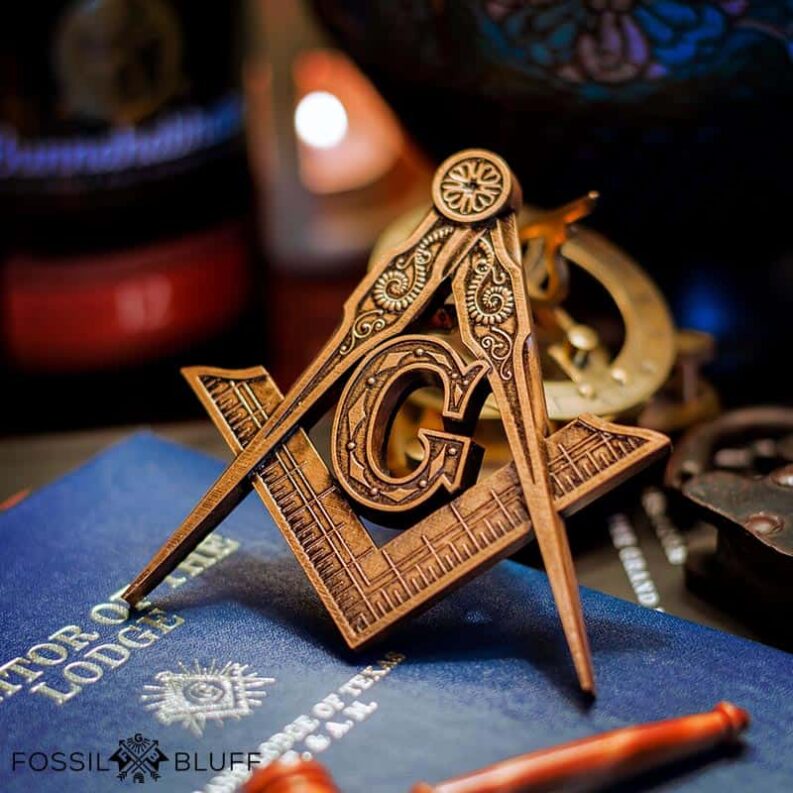Back to: Protected: The Master Mason Lesson
The Master Mason Degree is not the end but the beginning of a greater journey in Freemasonry. This course equips you with the knowledge and tools to continue your growth within the Craft and make meaningful contributions to your Lodge and community. As a Master Mason, you embody the principles of the fraternity and serve as an example of moral integrity, intellectual pursuit, and brotherly love.
Let this course be your guide as you step forward into the full light of Freemasonry, prepared to live its values and lead by its teachings.
The rights of a Master Mason are Masonic Relief, Masonic Visitation, and Masonic Burial.
Masonic Relief may be applied for by any Brother, either to his Lodge or to a Masonic Brother. Relief is a voluntary function of a Lodge or a Brother, and may be granted or refused. Masonic Visitation to another Lodge is a right that may be refused if there is an objection by a Brother of the Lodge you are visiting. Masonic Burial is always at the request of the Brother, before his death, or his family after. The constant responsibility of every Master Mason is to preserve the reputation of the Fraternity, unsullied. Every Master Mason has a moral responsibility to the Lodge which gave him light and all the benefits which come with it. All members of the Lodge present must ballot on a petition for the Degrees or Affiliation. No member can be permitted to retire from the lodge to avoid casting his ballot. No member present can be excused from balloting, except by a unanimous vote of the Lodge, and only when good cause is shown. If you know of some reason to indicate a petitioner is unworthy, do not hesitate to use the black cube to protect the Lodge from undesirable members. The secrecy of the ballot is guaranteed by Masonic Law. A Brother may not disclose how he voted, and no Brother may inquire into how another Brother voted on a petition. This is a strict violation of our Masonic Code.
It is the responsibility of the Worshipful Master to satisfy himself that every visitor is a Mason, in good standing, in a regular Lodge.
To investigate petitioners is the responsibility of every member of the Lodge, and should not be taken lightly if your Lodge is to be protected against undesirable members. Every member has a responsibility to support his Lodge by paying his dues. He also has a moral obligation to support Masonic Charity and a distressed worthy Brother, and should weigh the need against his ability.
Termination of membership may be accomplished in one of four ways: dimit, suspension, expulsion, or death. You may dimit for the purpose of joining another Lodge. You can be dropped from the rolls as a member for nonpayment of dues. You may be suspended or expelled for un-Masonic conduct or a serious violation of Masonic Law. When arriving late for a Lodge meeting, you should inform the Tyler that you desire to enter. He will tell you what Degree the Lodge has been opened in, and will give the alarm at the door. When you enter, you will approach the Altar, give the Due-Guard and Sign of the Degree; and, after the response by the Master be seated. While discussion in the Lodge is usually a good thing, religion and politics are never discussed in a Lodge.Voting is done on all normal business matters before the Lodge.
Balloting is done on Petitions for the Degrees or Affiliation or for the annual election of Officers.
Lodge members always vote by raising the left hand on all matters except Petitions and elections of officers. Balloting on petitions is done by use of a ballot box using white balls to elect and black cubes to reject. Election of officers must be by written ballot.
The elected officers are Worshipful Master, Senior Warden, Junior War den, Treasurer and Secretary. The Worshipful Master then appoints the Senior and Junior Deacons, the Senior and Junior Stewards, a Chaplain, a Marshal, and a Tyler. He may also appoint an Organist if he so desires.
The Grand Lodge derives its power from the Craft. The function of the Grand Lodge is that of a supreme legislative, judicial and executive body when it is in session. The Grand Master retains all of these powers between sessions of the Grand Lodge.


